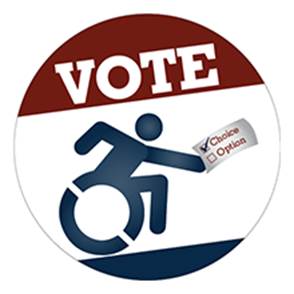Source: electionLine
By Jim Dickson
Responsible public policy and the law require that all election related information and processes made available to all voters must be accessible. That means that the format it is saved in must be something that a screen reader used by individuals who are blind or visually impaired can read.
The Presidential election is almost upon us, total compliance for November would be difficult if not impossible. However, there is one small step towards accessibility that election officials could take in time for November’s election.
Make your sample ballot accessible!
Americans with disabilities want to be educated voters. Accessible sample ballots would obviously help us. We could also take less time in the polling place if we already had our minds made up for whom we were going to vote for if we could use an accessible sample ballot. The sample ballot could be made accessible without disrupting the rest of the Election website. There are several vendors that have the ability, for a reasonable price of course to make the sample ballot accessible.
The National Council on Independent Living (NCIL), the largest cross disability membership organization in the country, has on our website (www.ncil.org/votingrights) a list of experienced companies which specialize in website accessibility. Plus, other resources are there to educate election officials about what needs to be done to make their entire website accessible.
Recently the New York State Board of Elections was sued in Federal court because their online voter registration system was not accessible.
Don’t be next! Start now to make your website accessible by developing a plan in conjunction with a first step of providing an Accessible Sample Ballot.
Jim Dickson is the co-chair of NCIL’s Voting Rights Subcommittee and one of the founding members of the United States Election Assistance Commission’s Board of Advisors.

 Ask your City Council to sign a proclamation to recognize National Disability Voter Registration Week in your community.
Ask your City Council to sign a proclamation to recognize National Disability Voter Registration Week in your community. 
